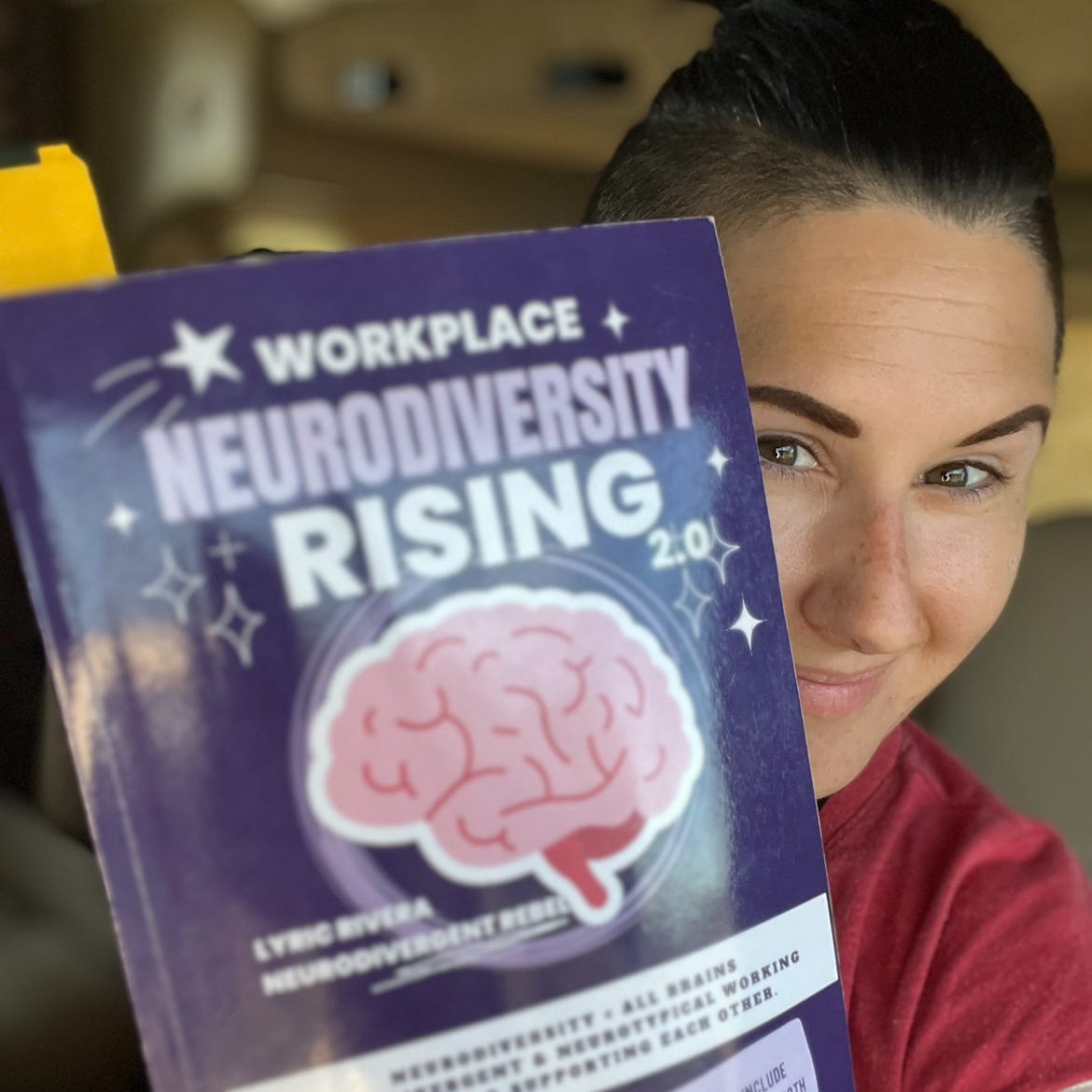Knowledge is Power: Why I have fewer Meltdowns & Overloads These Days (After my Autism Diagnosis)
Late Identification: Why I used to have more meltdowns, shutdowns, and other kinds of overloads when I didn't understand my Autistic and ADHD brain.
I've got a confession to make:
I'm an adult, but I still have meltdowns, shutdowns, and other kinds of overloads from time to time – though not as many as I used to have (when I didn't understand my NeuroDivergent mind).

Growing up, I'd always experienced "emotional outbursts" and "big feelings" (and felt as if my inability to contain myself" was a personal moral failing).
Before finally being diagnosed Autistic, a few months shy of my 30th birthday, I had begun to experience more and more frequent overloads.
Because I didn't know I was Autistic (yet), I did not understand what was happening to me or why these "embarrassing events" kept occurring.
Leading up to my diagnosis, work was my most frequent overload trigger (because I had found myself in a new role with a team that always expected me to be a person who could drop whatever they were doing without warning to help solve people's office problems).
I quickly found out I was NOT this person.
Part of my personal Autistic experience is that I struggle with transitions and interruptions to my train of thought, which makes abruptly shifting tasks rage-inducing for me (even if I don't express this rage externally).
It takes me a while to get started and build momentum when working on something.
Like a train building up speed on a rail, it takes a lot to get me moving, and once I get moving and finally get up to speed, it is hard for me to stop the momentum I've built up.
Unfortunately, most people around me don't see, understand, or respect how my mind works.
Because other people are more like cars that can "just stop" and quickly get back on track without issue, they think I should be able to do the same thing.
The cars consistently place themselves on my tracks, expecting me to stop, but my train is heavy and moves with momentum and energy that's hard to slow.

All my energy HAS to go somewhere.
When one of these much more agile cars stops in front of me, I can either "crash into it" (by letting all my rage out on the car/person who's insisted on interrupting me) OR I can "crash in on myself" (channeling all that rage inward, allowing the train to derail, crashing into itself).
Because the consequences are often lesser when I channel my rage inwards, internal explosions (internalized meltdowns) and shutdowns had become my norm before being diagnosed Autistic at the age of 29.
Whether my train derails outwardly (via crashing into whoever’s forced me to come to a rapid halt) or internally (channeling all my rage inward on myself), both types of wrecks are disruptive and stressful and will require recovery time—to re-align my train cars and get myself back on track.
For most of my life, I did not understand why this was happening to me.

Back then, I did not know I was Autistic. I did not know I was ADHD.
I did not know what a meltdown, a shutdown, or sensory overload was when I did not know I was Autistic, so I did not understand what was happening to me.
I also did not know how to treat myself with compassion – because I saw myself as a bad, broken, flawed, angry, over-emotional human being.
I did not know what my triggers were.
I did not know how to recognize when the pressure was building inside me when I was "getting overwhelmed," or when it was too late and the overwhelm was imminent.
I did not know how to ground and regulate when I was becoming triggered or the best ways to recover from overloads (yet).
Seven and a half years later, I still internalize (and implode) much more frequently than I externalize and implode.
For most of my life, up until my mid-20s, I'd survived by sticking to what I was good at and avoiding things I struggled with (as many undiagnosed NeuroDivergent People do).
I’d done fairly well (to this point). Then, I made one change that would send my carefully balanced house of cards crashing to the ground.
Paid subscribers have access to the rest of the story. Thanks to every one of you for supporting my work.
Half-Priced Low-Income Subscription Available
If you are in need of a discount, please use the link below to get your subscription at a deep discount (because I don't want money to be an obstacle to people):
https://neurodivergentrebel.substack.com/LowIncomeDiscount
For readers experiencing financial hardship, please note that this offer is exclusively for you. This discount is offered on the “honors system” - I am not going to ask anyone for proof.
Please, kindly refrain from taking this offer if you do not need it.
I hope this helps,
- Lyric
Keep reading with a 7-day free trial
Subscribe to NeuroDivergent Rebel’s Substack to keep reading this post and get 7 days of free access to the full post archives.




